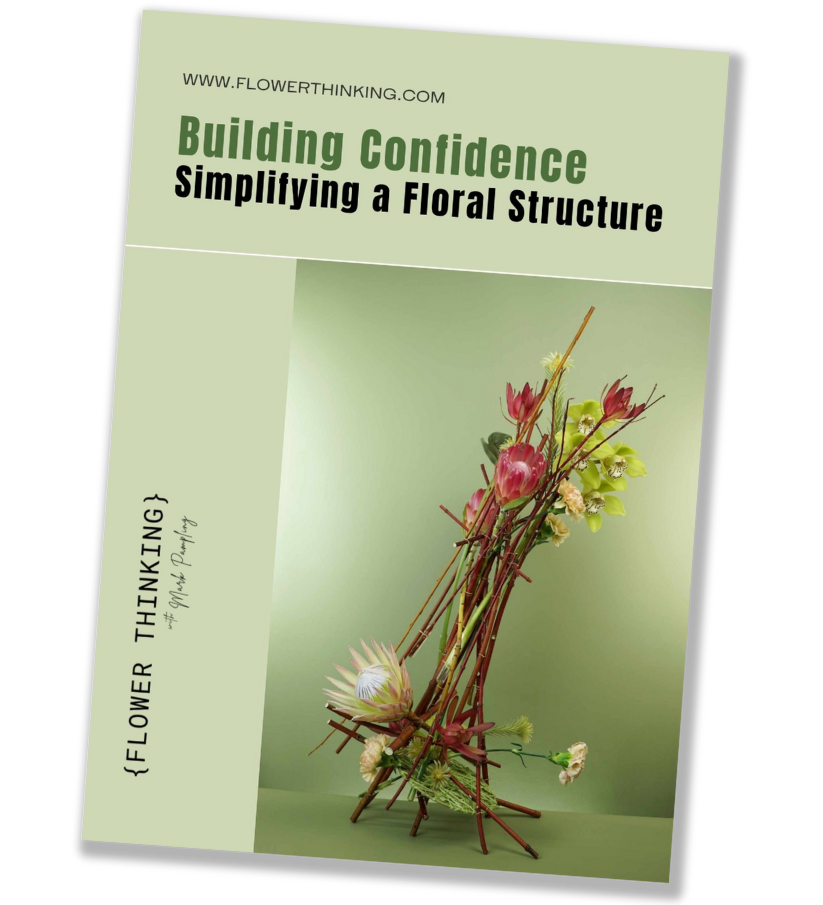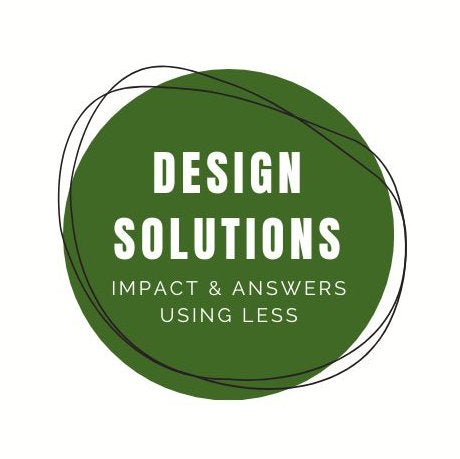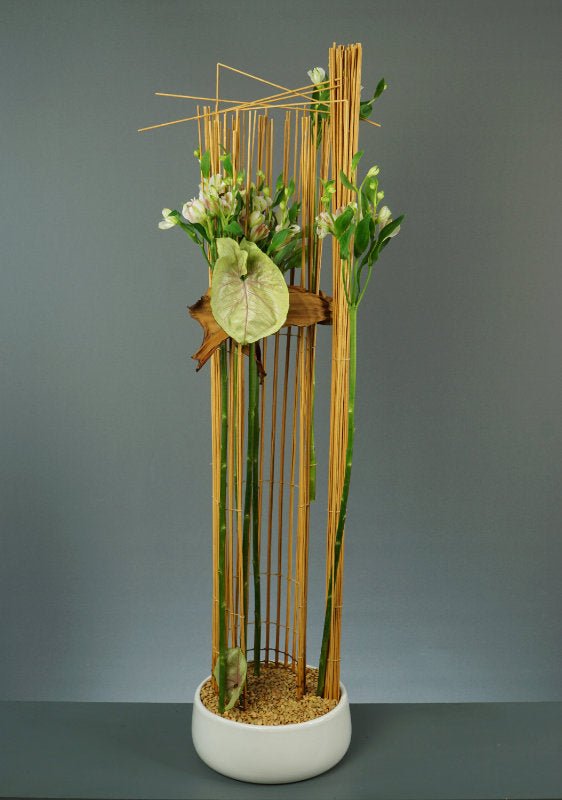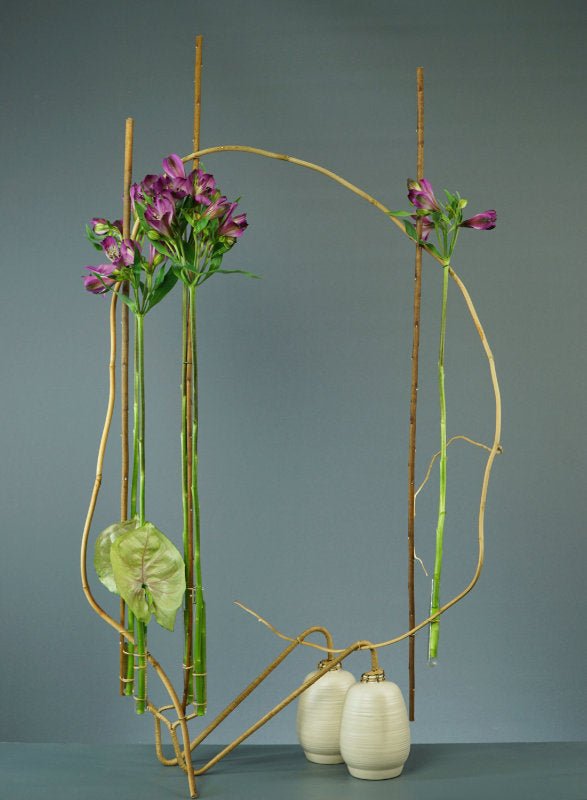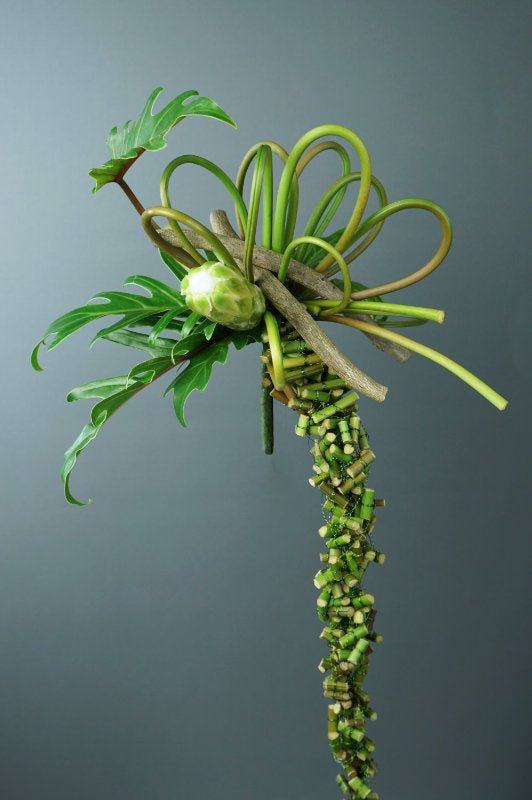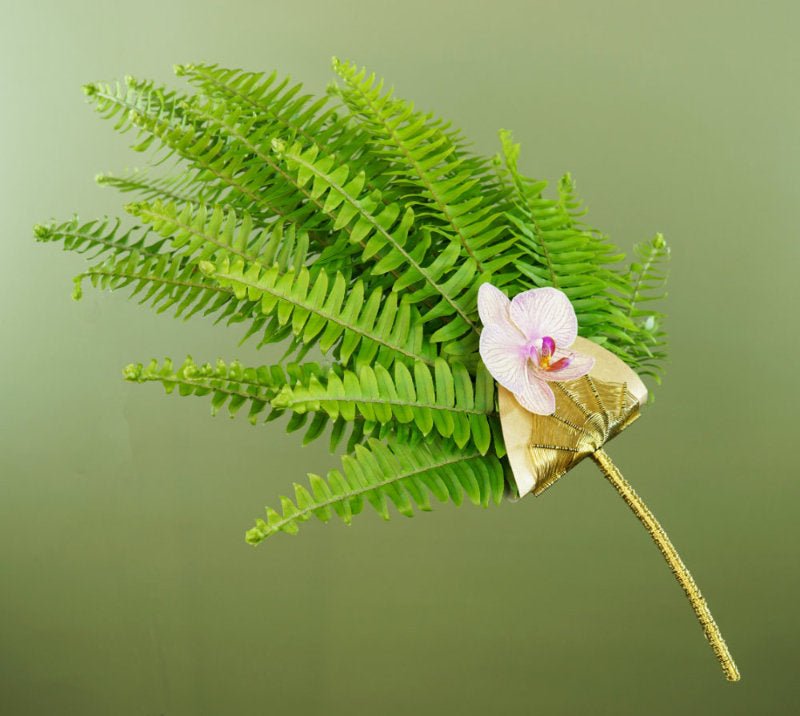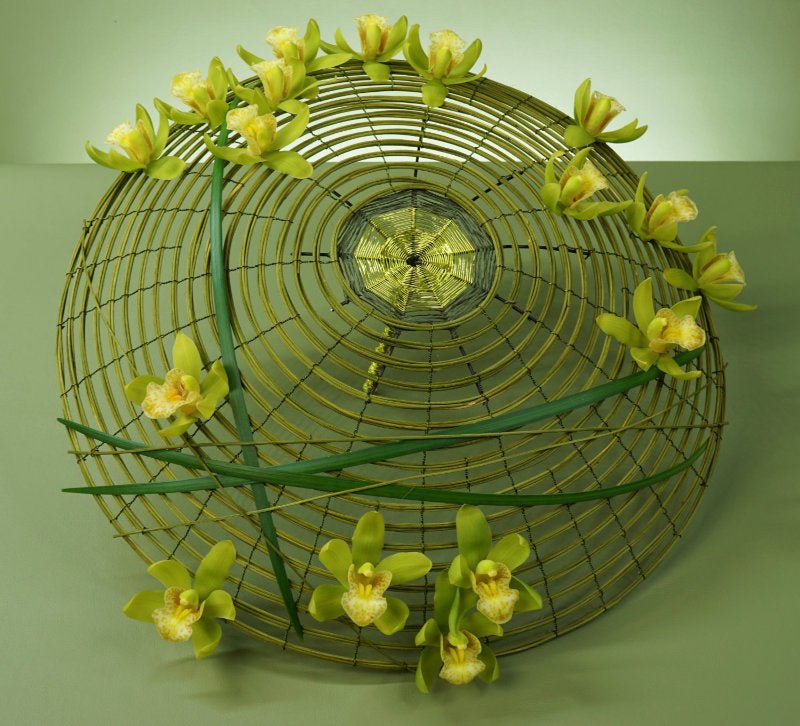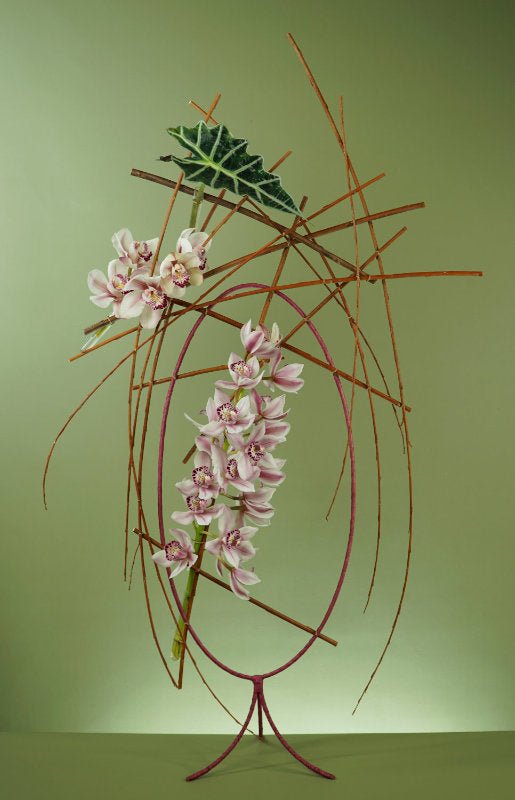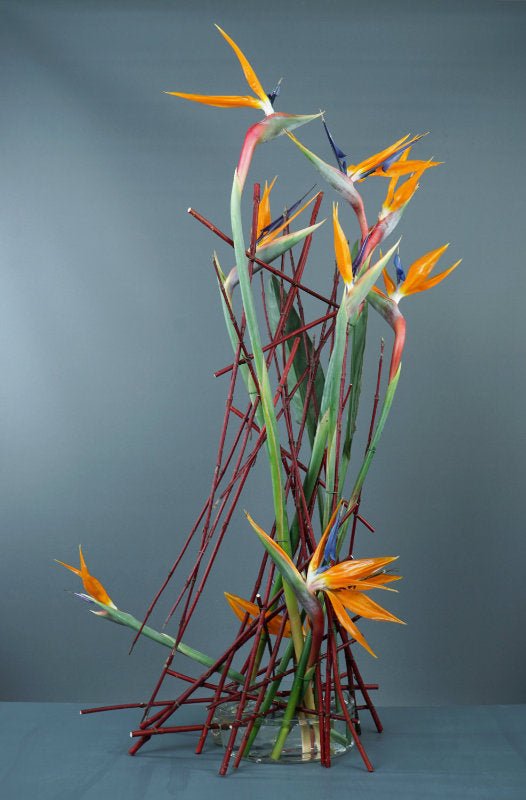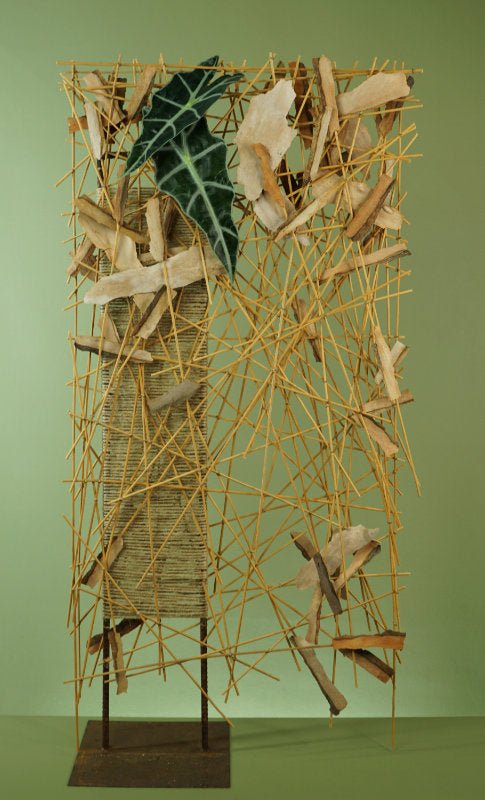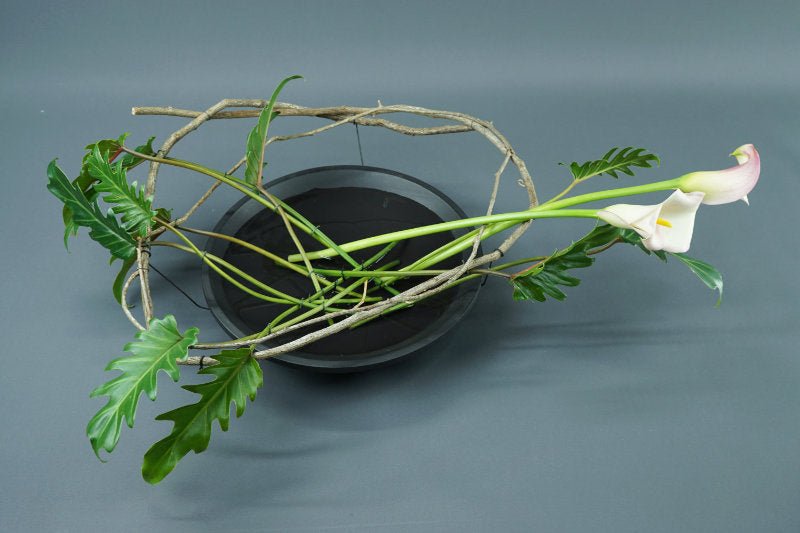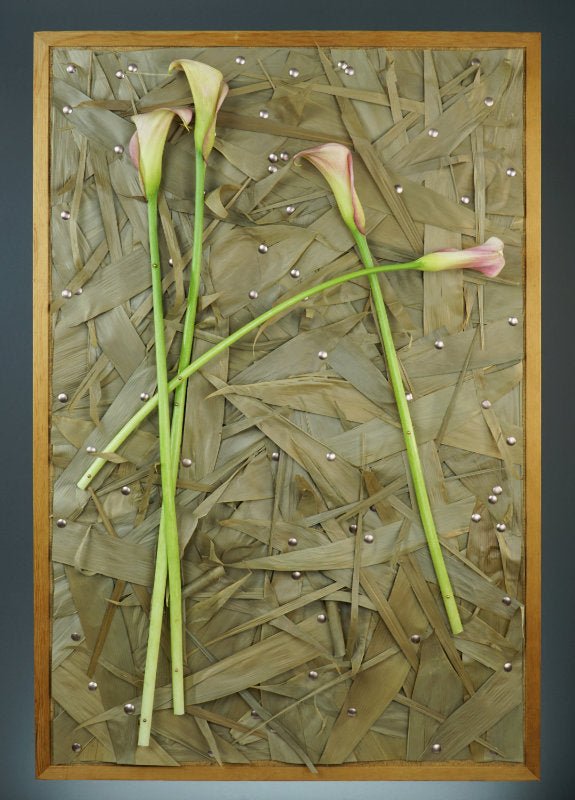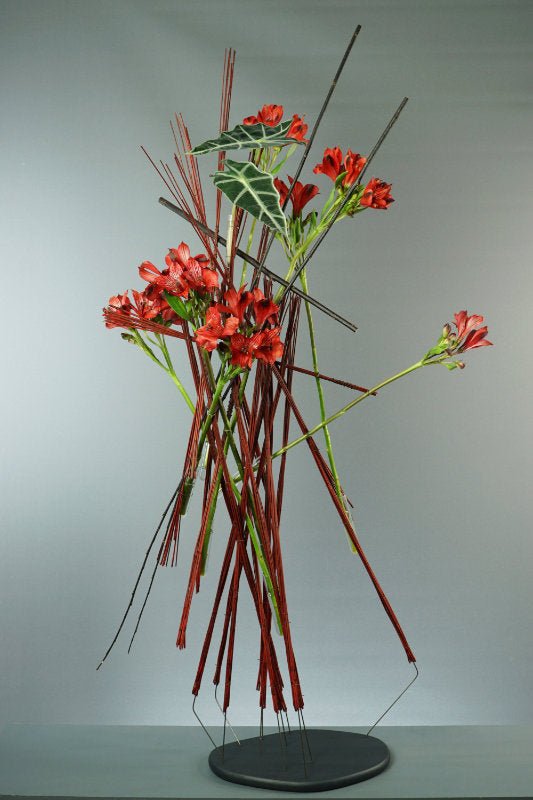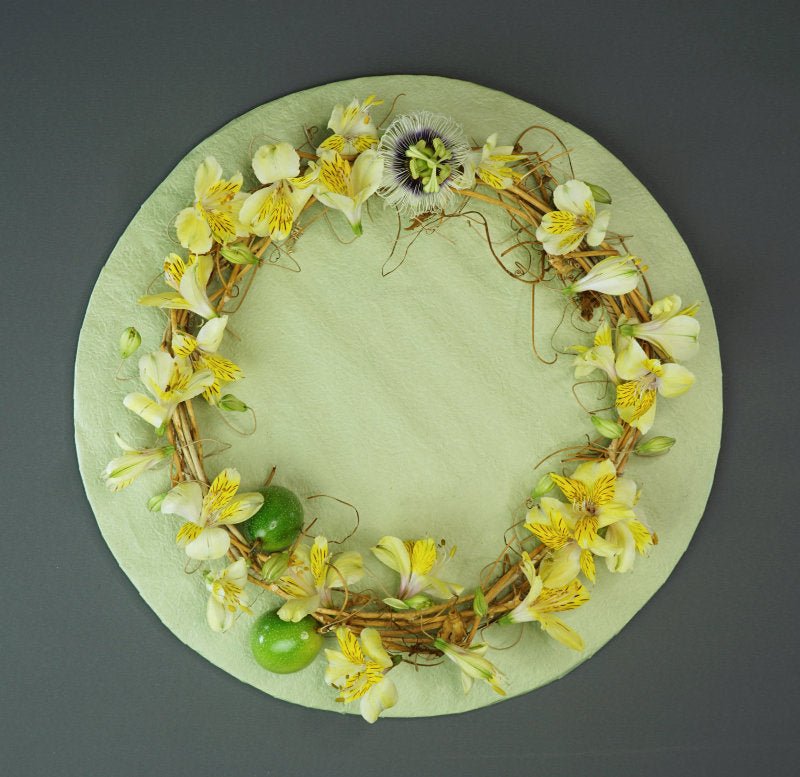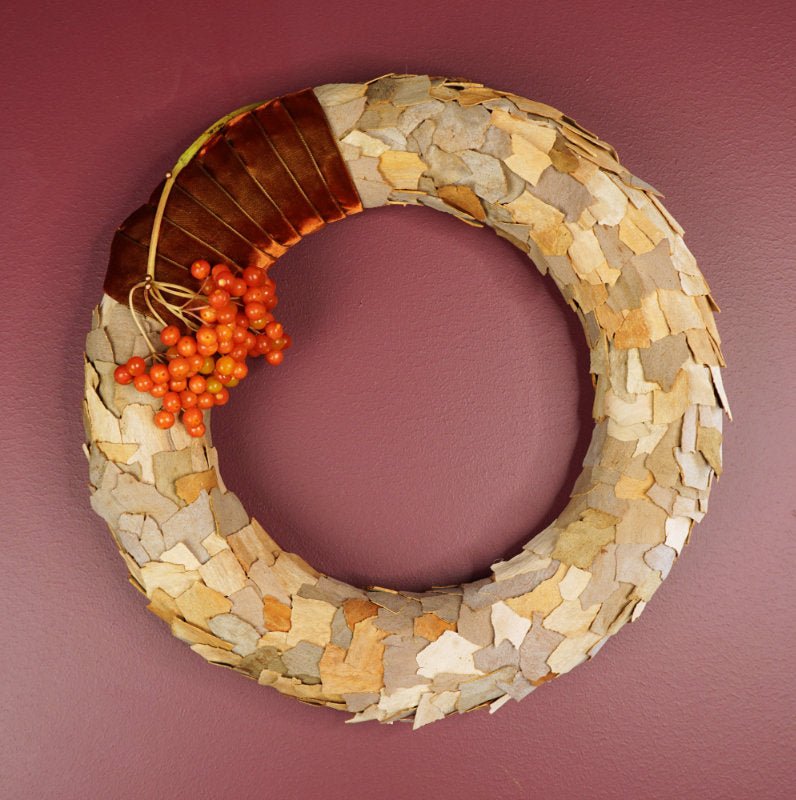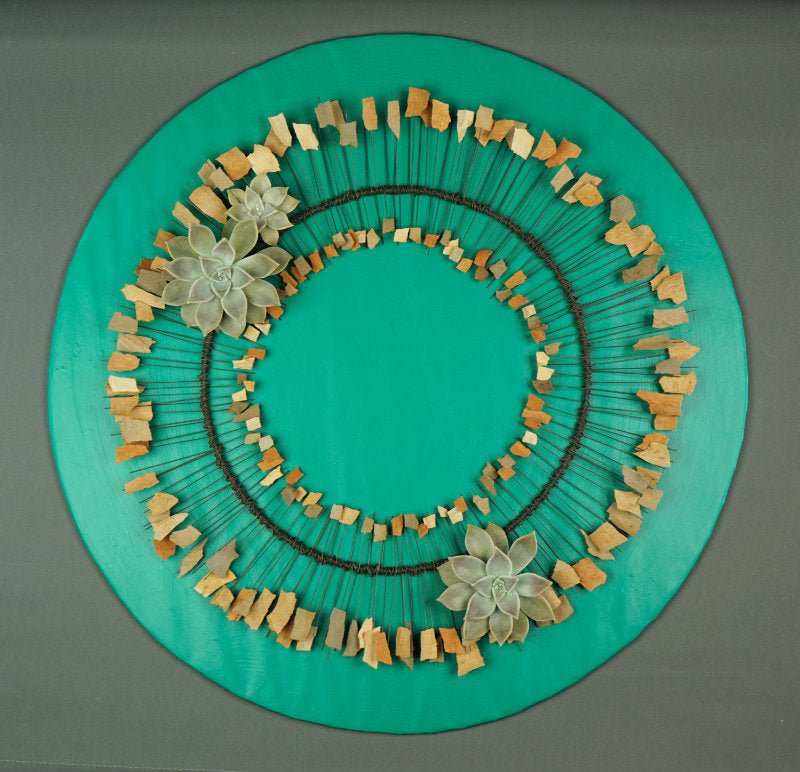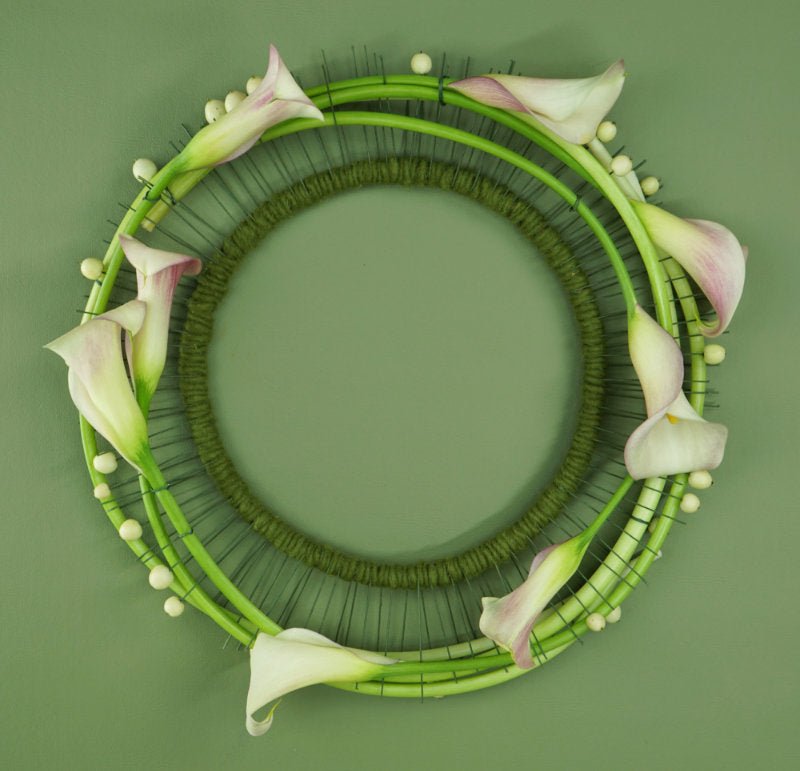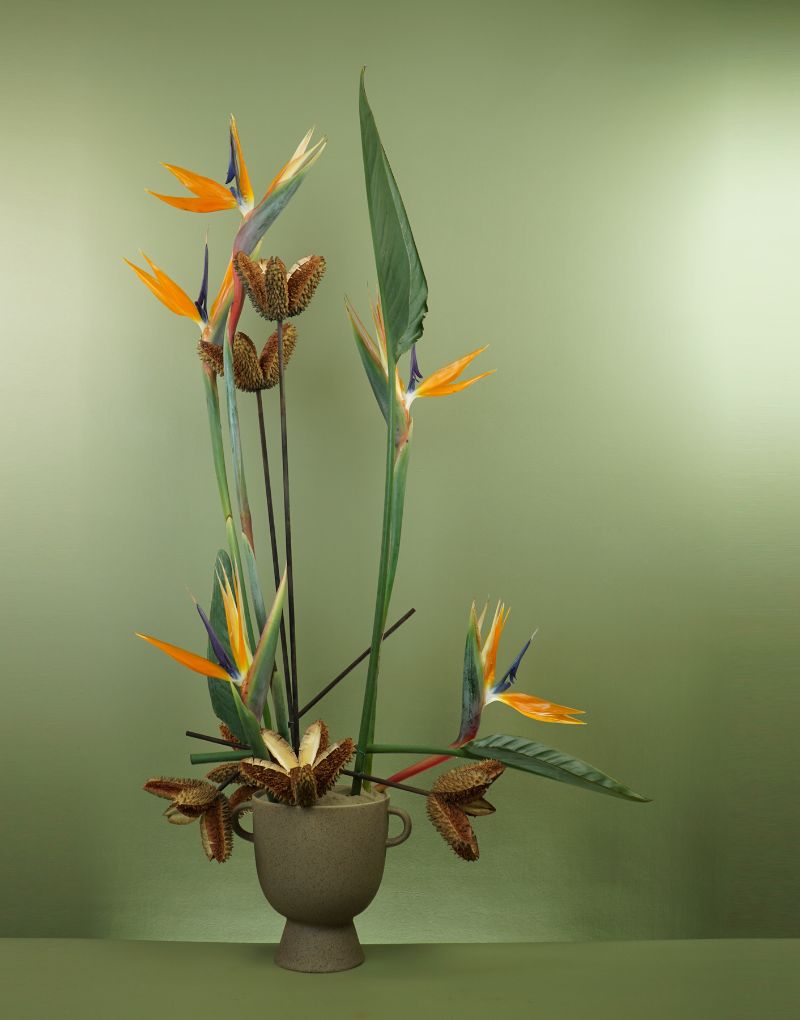
Design Solutions
See Course Dates
Led by Mark Pampling, Master Florist
Let's narrow our focus on the principles of design and become better at using design principles as tools to solve problems in our designing.
When we constrain our material choices we become less reliant on adding more materials to create impact and more skilled in solving design problems using the principles of design as our tools.
And so we become more resourceful, confident and self-reliant designers.
Sessions times for US, Europe, UK, Africa, Australia & New Zealand
Design Solutions Timetable - Wide
2025 Timetable
Dates & Times for US Time Zones (Sunday)
| Meeting | Pacific LA |
Mountain Denver |
Central Dallas |
Eastern Buffalo |
| Introduction | Sun 14 Sep 4:30pm |
Sun 14 Sep 5:30pm |
Sun 14 Sep 6:30pm |
Sun 15 Sep 7:30pm |
| Task 1 Arrangement |
Sun 28 Sep 4:30pm |
Sun 28 Sep 5:30pm |
Sun 28 Sep 6:30pm |
Sun 29 Sep 7:30pm |
| Task 2 Bridal Design |
Sun 19 Oct 4:30pm |
Sun 19 Oct 5:30pm |
Sun 19 Oct 6:30pm |
Sun 20 Oct 7:30pm |
| Task 3 Wreath |
Sun 09 Nov 4:30pm |
Sun 09 Nov 5:30pm |
Sun 09 Nov 6:30pm |
Sun 10 Nov 7:30pm |
| Task 4 Overlapping Design |
Sun 30 Nov 3:30pm |
Sun 30 Nov 4:30pm |
Sun 30 Nov 5:30pm |
Sun 01 Nov 6:30pm |
Dates & Times for US Time Zones (Monday)
| Meeting | Pacific LA |
Mountain Denver |
Central Dallas |
Eastern Buffalo |
| Introduction | Mon 15 Sep 4:30pm |
Mon 15 Sep 5:30pm |
Mon 15 Sep 6:30pm |
Mon 16 Sep 7:30pm |
| Task 1 Arrangement |
Mon 29 Sep 4:30pm |
Mon 29 Sep 5:30pm |
Mon 29 Sep 6:30pm |
Mon 30 Sep 7:30pm |
| Task 2 Bridal Design |
Mon 20 Oct 4:30pm |
Mon 20 Oct 5:30pm |
Mon 20 Oct 6:30pm |
Mon 21 Oct 7:30pm |
| Task 3 Wreath |
Mon 10 Nov 4:30pm |
Mon 10 Nov 5:30pm |
Mon 10 Nov 6:30pm |
Mon 11 Nov 7:30pm |
| Task 4 Overlapping Design |
Mon 01 Dec 3:30pm |
Mon 01 Dec 4:30pm |
Mon 01 Dec 5:30pm |
Mon 02 Dec 6:30pm |
Stay Updated
If you'd like us to update you on new course dates and other developments in Design Solutions, you can register your interest here.
When we commenced the workshop I was quite surprised we would be working with one material and not much else. I was challenged throughout the process which resulted in a very beneficial outcome. Although I was challenged throughout the workshop, I also felt supported greatly with advice and tips from Mark. The opportunity was wonderful and i feel i have learnt so much from carrying out each exercise. Thank you Flower Thinking for this great opportunity to be challenged, to learn, to be supported and to be part of the #designdisciplineexperiment.
Design Solutions saw a different approach where only two materials were to be used. This was challenging for me as I like to work with a variety of materials. Using my previous studies with Mark as a guide I chose beans and anthuriums. Using all parts of both plant materials. Including the seeds and leaves of the plants. A great experience it, pushed my creativity. I found a different perspective of the value of all parts of the plant.
This was a fantastic class and I highly recommend it. Mark opened up my creativity and taught me to look at every element in different ways.
This was a fantastic class and I highly recommend it. Mark opened up my creativity and taught me to look at every element in different ways.
The design discipline course made me reevaluate the way I approach my floral design. It gave me some new insights and pointers on how I can improve my design thinking. I enjoyed having time between each session to think about and create my design for each assignment. Mark’s evaluations and constructive comments about everyone designs were enlightening. It was so interesting to see how each student interpreted the weekly assignments. It was really great. Definitely recommend to any floral designer that wants to improve their craft.
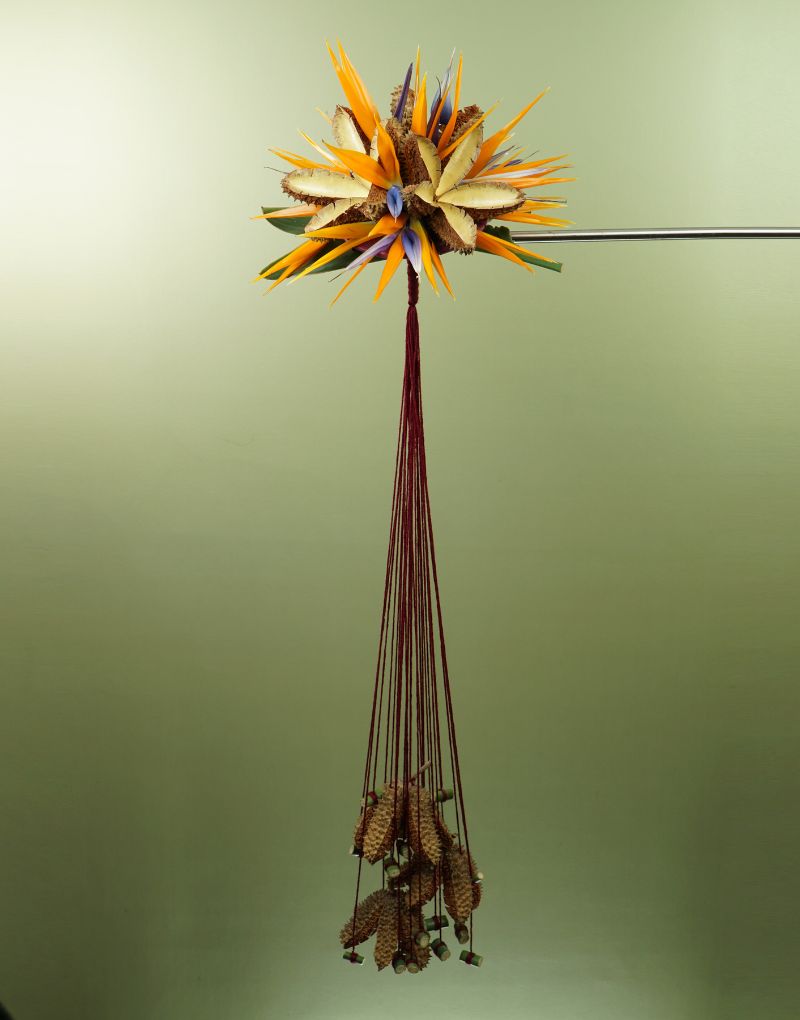
In Design Solutions we apply this way of working to four hands-on exercises, working with guidance, mentorship and feedback from the course presenter, Mark Pampling.
The exercises we use to explore this way of working are an arrangement, a bridal design, a wreath and an overlapping design.
Typical Instructions from a Live Session
Tasks are well explained, comprehensive instructions, generous guidelines and plenty of tips for success.
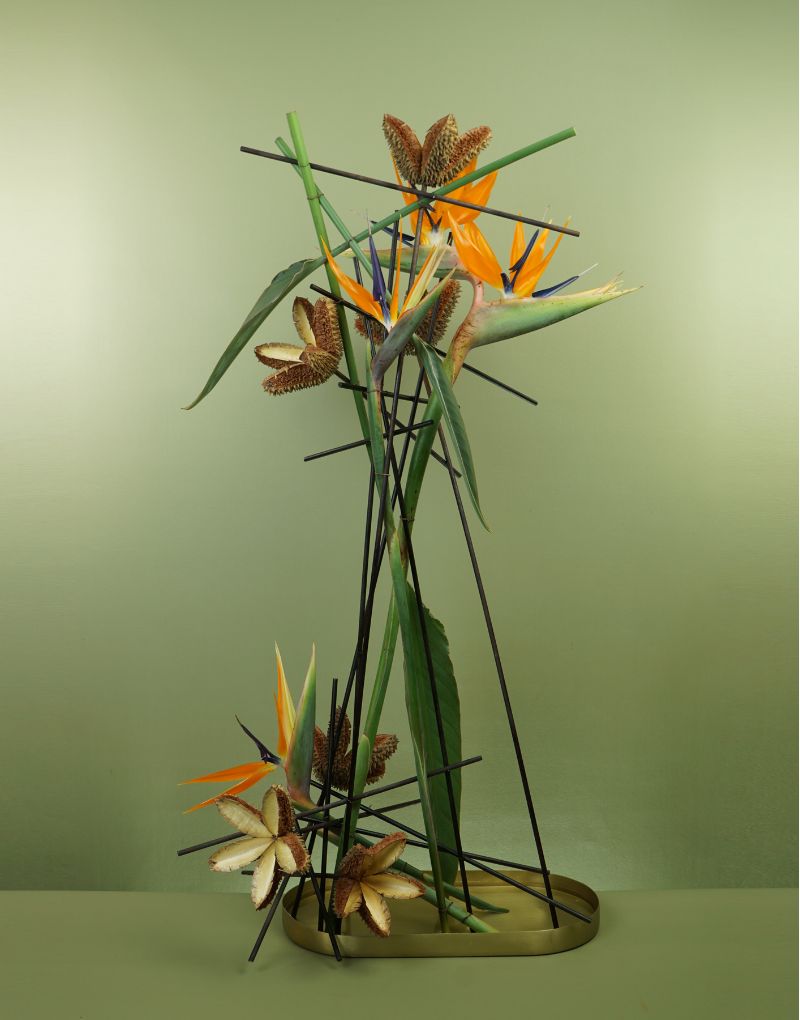
We are inclusive of people of all levels of experience and skill, from those just starting out to seasoned designers. Some of our material is aimed at a more advanced level. Most of it is theory-focused, supported by hands-on exercises and group feedback sessions, all with comprehensive notes delivered after each meeting, and online access to the group session recordings for six weeks after each course completes.
Past participants have come from fields as diverse as floral artist, designer, arranger, floristry judges and teachers.
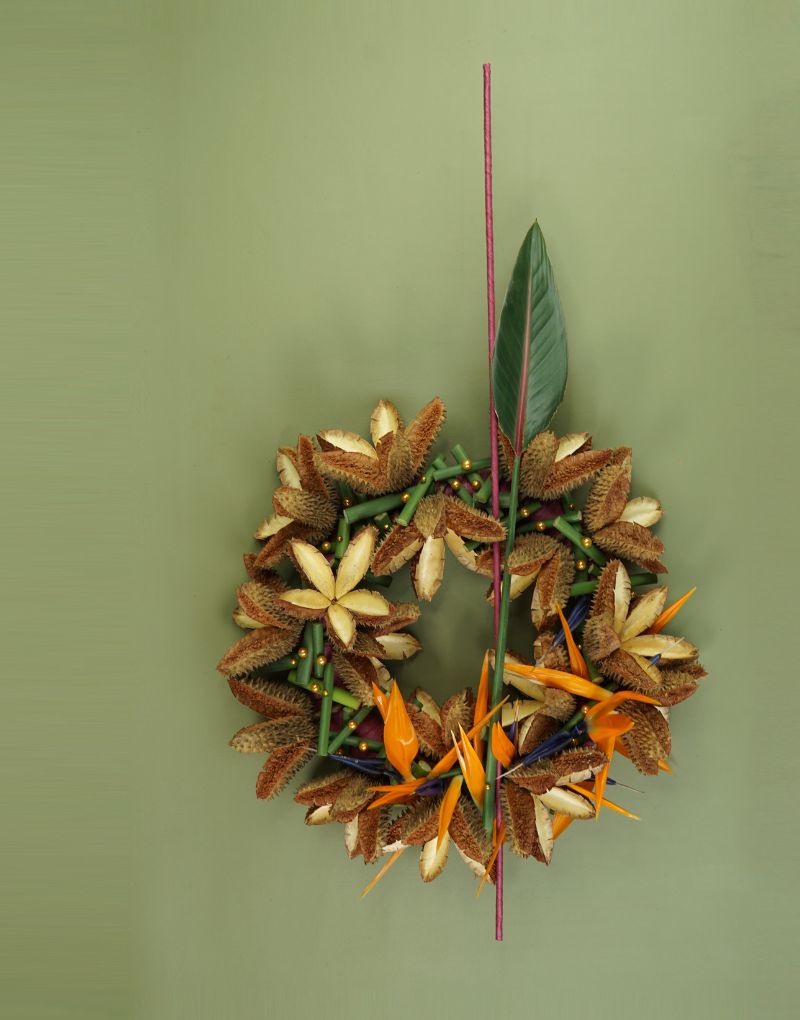
While the aim of Design Solutions is to make us more independent practitioners, we can all sometimes feel "stuck" and need to reach out for help, guidance or just a fresh perspective.
Throughout the course, I am available by email to answer your questions or clarify aspects of the material. I usually manage to reply on the same day, sometimes a little longer if I'm on tour, and sometimes quicker.
Examples Designs from a Live Session
Mark creates plenty of example designs for each exercise and talks you through his decisions, for insight and inspiration. The following clip is excerpted from a session in our One Container, Five Elements course. It gives some sense of the type of discussion you can expect in a Flower Thinking course.
Feedback on our Feedback - from past Participants
At the heart of Flower Thinking's learning process is the feedback and the way it is delivered: detailed and yet concise; technical and also accessible; objective, constructive and respectful.
-

Sharon, New Zealand
I would highly recommend this type of online learning to others. I really enjoyed the assignments and it was great to have something specific to work on. Each assignment was clearly defined and the feedback provided on everyone's work was clear with exciting suggestions made by Mark on how to improve the design or how it could be developed to become a showstopper.
-

Celéste, WA, Australia
I'm just amazed at how able you are to in a very positive way, give criticism, it's fantastic. You really have a skill there of not making people feel inadequate and yet you do make all the points that are important.
-

David, NSW, Australia
Mark thank you for always pushing boundaries and encouraging us to all question why we design as we do. This course is further developing my thought processes in the application of the elements and principles of design. The group discussions provide amazing insights into all aspects of the tasks. Your feedback is considered and on point. Looking forward to the next submission.
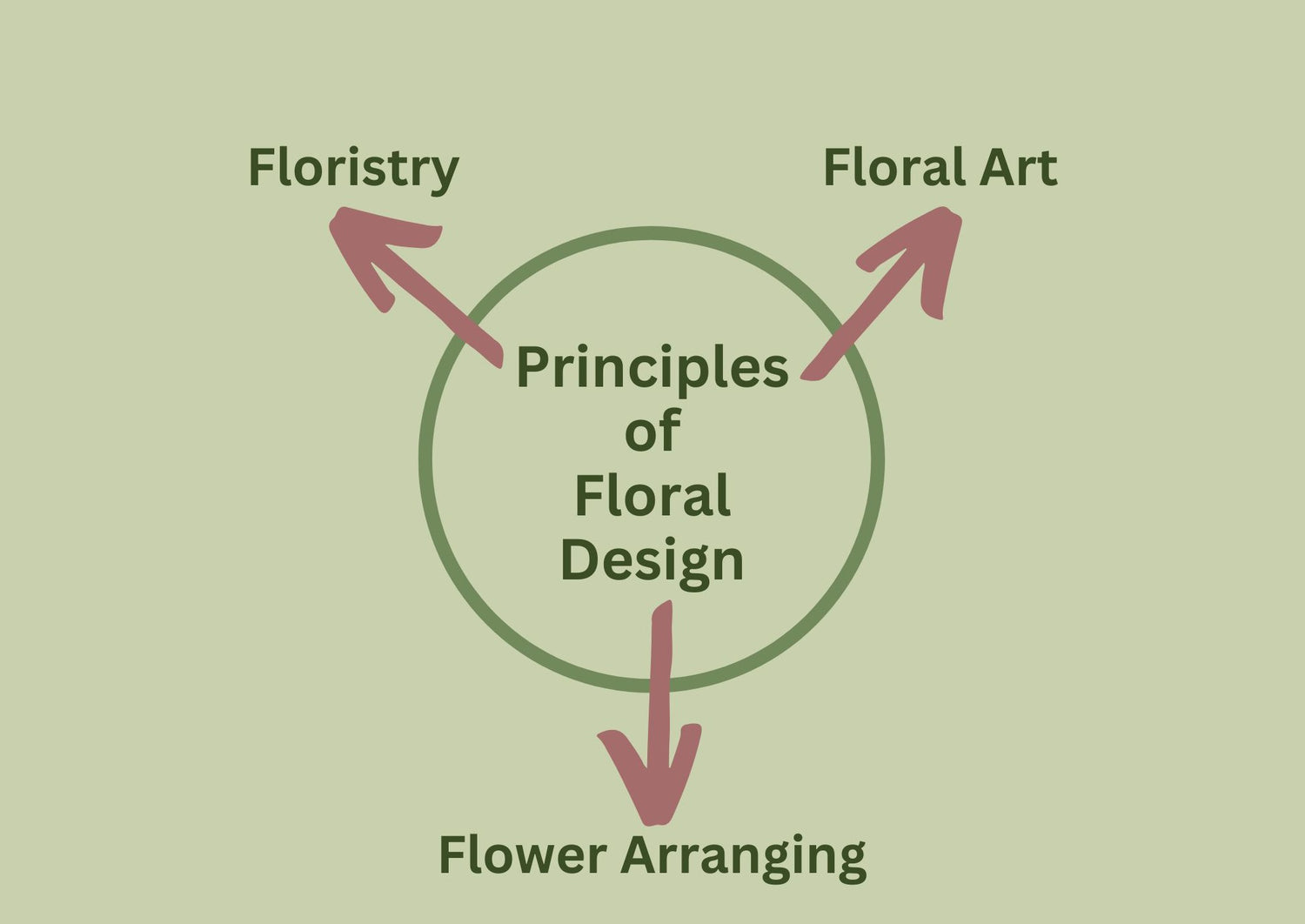
Design Learnings in the Real World
The learnings and insights gained from Design Solutions have wide applicability.
If you educate, judge, compete, design or create with flowers in any form, Design Solutions can make you a more confident practitioner of your craft.
Design Solutions Timetable - Wide
2025 Timetable
Dates & Times for US Time Zones (Sunday)
| Meeting | Pacific LA |
Mountain Denver |
Central Dallas |
Eastern Buffalo |
| Introduction | Sun 14 Sep 4:30pm |
Sun 14 Sep 5:30pm |
Sun 14 Sep 6:30pm |
Sun 15 Sep 7:30pm |
| Task 1 Arrangement |
Sun 28 Sep 4:30pm |
Sun 28 Sep 5:30pm |
Sun 28 Sep 6:30pm |
Sun 29 Sep 7:30pm |
| Task 2 Bridal Design |
Sun 19 Oct 4:30pm |
Sun 19 Oct 5:30pm |
Sun 19 Oct 6:30pm |
Sun 20 Oct 7:30pm |
| Task 3 Wreath |
Sun 09 Nov 4:30pm |
Sun 09 Nov 5:30pm |
Sun 09 Nov 6:30pm |
Sun 10 Nov 7:30pm |
| Task 4 Overlapping Design |
Sun 30 Nov 3:30pm |
Sun 30 Nov 4:30pm |
Sun 30 Nov 5:30pm |
Sun 01 Nov 6:30pm |
Dates & Times for US Time Zones (Monday)
| Meeting | Pacific LA |
Mountain Denver |
Central Dallas |
Eastern Buffalo |
| Introduction | Mon 15 Sep 4:30pm |
Mon 15 Sep 5:30pm |
Mon 15 Sep 6:30pm |
Mon 16 Sep 7:30pm |
| Task 1 Arrangement |
Mon 29 Sep 4:30pm |
Mon 29 Sep 5:30pm |
Mon 29 Sep 6:30pm |
Mon 30 Sep 7:30pm |
| Task 2 Bridal Design |
Mon 20 Oct 4:30pm |
Mon 20 Oct 5:30pm |
Mon 20 Oct 6:30pm |
Mon 21 Oct 7:30pm |
| Task 3 Wreath |
Mon 10 Nov 4:30pm |
Mon 10 Nov 5:30pm |
Mon 10 Nov 6:30pm |
Mon 11 Nov 7:30pm |
| Task 4 Overlapping Design |
Mon 01 Dec 3:30pm |
Mon 01 Dec 4:30pm |
Mon 01 Dec 5:30pm |
Mon 02 Dec 6:30pm |
Stay Updated
If you'd like us to update you on new course dates and other developments in Design Solutions, you can register your interest here.
Participation Guide
The Participation Guide is your guide to getting the most out of your participation in the Design Solutions program.
If you have questions about Design Solutions, some answers may be found in it, and you are also welcome to ask us any question directly.
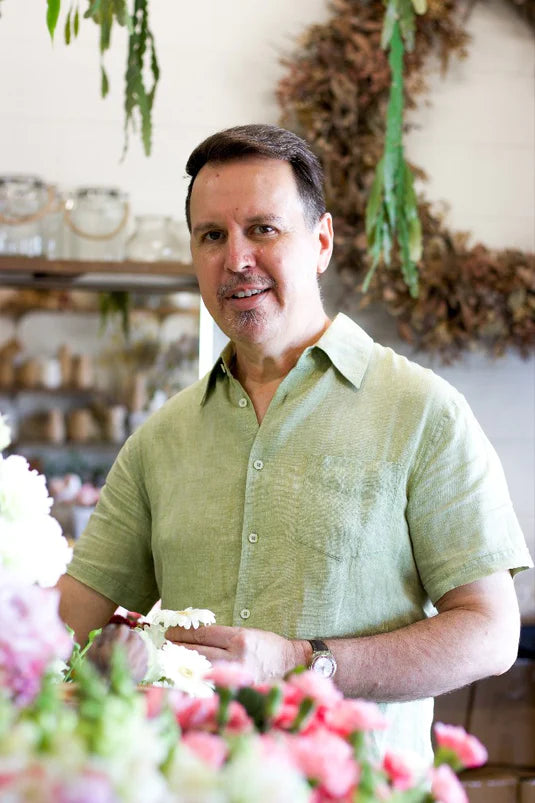
Mark Pampling has been designing, competing, teaching and judging for thirty years now and is as well known for his clear, linear design style as for his patient and inclusive way of sharing his knowledge.
- 2019 Beijing World Flower Art Contest – Champion
- 2015 Interflora World Cup, Berlin – Judge
- 2014 Fusion Flowers International Designer of the Year – 1st Place
- 9th China International Orchid Show (Sanya) – Best Creative Award
- 2014 International Flower Contest Japan – Best in Show, Gold Award and Design Innovation Award
- Asia Cup 2014 (Japan) – 1st Place – Surprise Table Display
- 2013 Fusion Flowers International Designer of the Year – 2 Silver Awards & 1 Bronze Award
- 2012 Fusion Flowers International Designer of the Year – 4th Place
- 2012 Interflora Australia Cup – Winner
- 2011 Interflora Australia Cup – Winner
- Australian Competitor 10th Interflora World Cup 2004 – 3rd Place
You can learn more about Mark here.
Flower Thinking
Design Solutions Online Course
Design Solutions Online Course
Embark on a journey of floral design discovery - not by seeing new things but by seeing things differently. Restrict your material choices and consciously apply design principles to solve design problems and create more impact without reaching for more materials.
Work through four distinctly different tasks, with expert guidance, mentorship and support from course convenor Mark Pampling, Master Florist.
Grasp the design principles as tools in your kit and wield them more adeptly for more design success, with less material and more intent.
The program timetable and detailed information on how to participate can be found in the Participation Guide.
Couldn't load pickup availability
Share










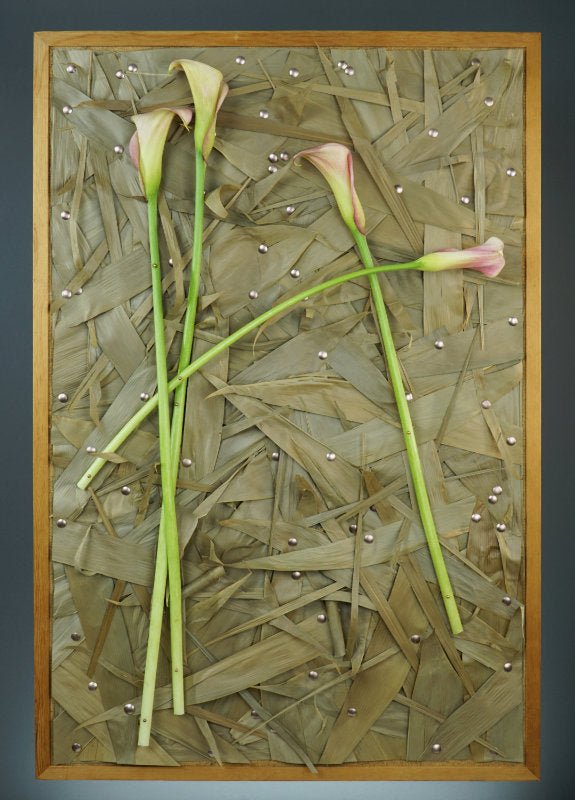




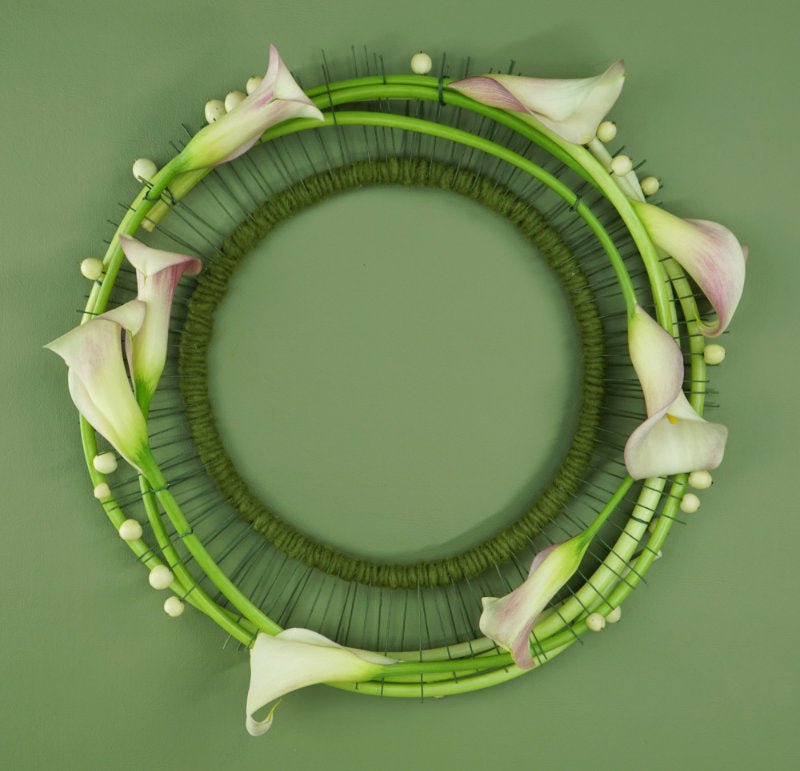
Let customers speak for us
from 80 reviewsThe intriguing theme,"Uncommon threads", captured my attention and thinking. I initially thought this short course,"Designing to win", would be too challenging. I found that it was actually comprehensive, well organized and structured, and rewarding eventually. This course was about understanding the rules and schedule of a competition. It was about learning how to evaluate one's design for a competition against an essential list of marking criteria for judging. Mark conducted two virtual discussion forums fluently, meticulously and constructively by giving clear analysis with concise explanations. He posed questions and made suggestions on each participant's design in #1 submission. The task of improving/adjusting/changing in order to achieve a better outcome became the necessary challenge for #2 submission.
The learnings from all the other submissions was just as important as those of mine. After having completed this course, I gained a better understanding of the entire process of designing to win and the crucial decision making that hinged on the points/marks for judging. The "wow factor" which can contribute to winning can be achieved by more critical evaluation of a design. Learning to be a better designer is always my aim in participating in Mark's courses. I truly felt that I achieved it and it was a likely "win" for me. The instructional eBooks and video tutorials on competitions were valuable bonuses given after completion of the course.
Thank you, Mark, for this great opportunity to learn from you.
One Container, Five Elements expanded my design processes and choices. Analysing the container and looking for a link to each of the five elements. Focusing on one element was a disciplined journey, one that became more complex the further I travelled along the path, albeit a rewarding journey. On reflection it allowed me to consider my choices and to give each element of design a voice in my arrangements. I likened it to a choir where one voice may lead but if the supporting harmonies are not in pitch the whole auditory experience is not quite right. I found myself falling to my favourite elements and constantly self-evaluating to see what was often needed, often editing rather than adding. During the group feedback sessions, I gained new eyes not only on my own work but that of my peers. Such a rewarding experience.
Each task or assignment for this course pushes you to think more about placement of components in order to ensure that the elements and principles of design are used to create a harmonious result. Mark encourages creativity by providing examples before leaving you to work in your own way, this is incredibly stimulating. All feedback provided is done in a positive way which encourages you to assess your own work better each time - however I still manage to repeat some of the same faults over and again ;) so plenty more to learn.
I really enjoyed the course and particularly found the critique process really helpful, as Mark carefully explained what worked well with the designs we had each produced and how they could potentially be improved further. At each stage, Mark explained how the design principles applied and helped me to develop my understanding of contemporary work.
Yet another amazing floral learning opportunity by our incredible Mark Pampling and Flower Thinking. The experience of learning is outstanding with endless learning opportunities. This is not simply an online course, it is an interactive extremely detailed, deep learning opportunity. Thank you Flower Thinking - My designs from the course are pictured below. So much learning and adaptation creates a new awareness and thought process in design which I truly enjoyed.
Festive Thinking allowed me to expand my creativity. Mark’s ebooks and video explanations were clear and provided examples of the task. I throughly enjoyed creating with the sickles and the online forum. Mark expert advice and suggestions gives insights into the designer’s arrangements. This allows for self improvement and reflection on my own creation. A wonderful experience I look forward to the next Flower Thinking offering.
